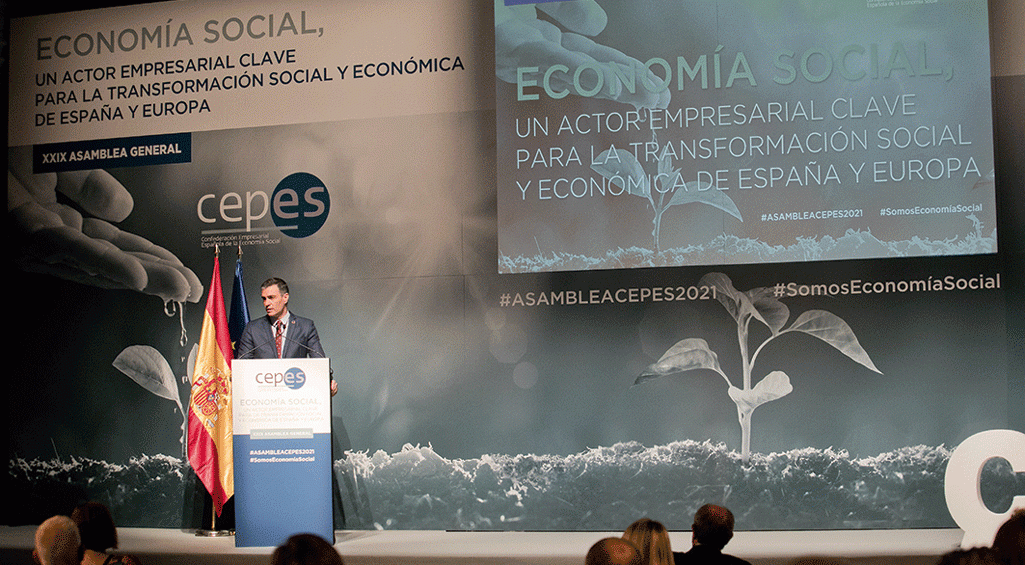
“The social economy will have a key, decisive role in the Recovery Plan”
At the General Assembly of the Spanish Confederation of Social Economy Companies (CEPES in its Spanish initials), held in Madrid, the confederation’s potential to generate wealth and its environmental work were confirmed.
The President of the Government of Spain, Pedro Sánchez made these declarations during the closing ceremony of 29th General Assembly of the Spanish Confederation of Social Economy Companies (CEPES), held on the 29th of April in Madrid.
In his speech, Pedro Sánchez indicated that the social economy “is a key, decisive agent in the social and economic transformation of Spain and Europe.” “The future involves shared leaderships and cooperatives that work in a single direction and that never forget the common good for many of the Social Economy’s values and principles,” he stated.
The Third Vice-president of the Government and Minister of Work and Social Economy, Yolanda Díaz, who took part in the opening ceremony of the event, underscored that social economy “ is at a good starting point, because a large part of the cross-cutting themes that make up the Government’s Resilience Plan represent the actions and values held by this business model.”
At the event, the potential of the social economy companies to generate wealth, work stability, social cohesion and inclusive development, also in crisis contexts was confirmed, by promoting production models that seek out a balance between economic competitiveness, resilience and social and environmental sustainability.
The Fundación Espriu forms part of CEPES and it is represented on its management board by Doctor Diego Lorenzo, a sponsor of the foundation and the vice-president of the Lavínia cooperative.
Currently, social economy in Spain is formed by over 43,192 companies, representing 12.5% of jobs; it generates around 2,200,000 direct and indirect jobs in all the economic sectors, along with an invoicing of around 10% of the GDP.




